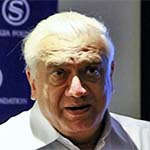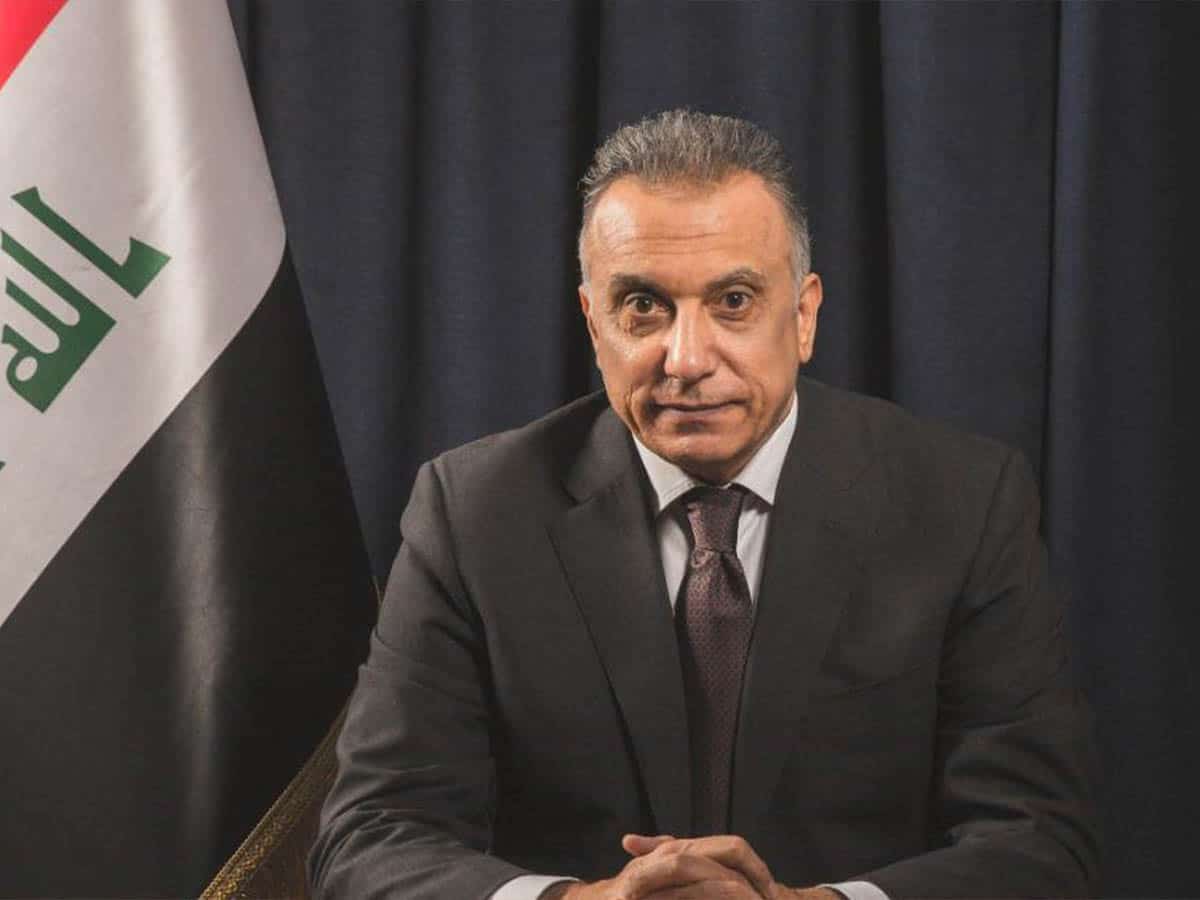
As Iraqi Prime Minister Mustafa Al-Kadhimi neared two months in office in late June, his counterterrorism forces raided the offices of Kata’ib Hezbollah, a radical member of the Popular Mobilization Units (PMU). Soon after, the country was rocked by two high-profile assassinations — of political commentator Hisham Al-Hashemi and Gen. Ali Hamid Al-Khazraji, who was leading the fight against extremist elements in Tarmiyah, 50 kilometers north of Baghdad, which was once a Daesh recruitment center and sanctuary for fighters and weapons.
Last week, Al-Kadhimi visited Tehran in his first foreign tour as prime minister. These separate developments encapsulate the diverse challenges facing him as he attempts to bring peace and economic revival to his beleaguered nation.
The raid on Kata’ib Hezbollah on June 26 and arrest of some of its fighters affirmed the intentions of the prime minister to end the autonomy of the PMU’s militias and bring them within the fold of the government-controlled security services. The militants have stoutly resisted this, while continuing with their independent fight against US targets through rocket fire and instigating harsh retaliatory action.
While the government defended the arrests by saying it had credible information that attacks on high-profile and sensitive targets were planned, the militants claimed that resistance was their “fundamental legitimate right.” The situation was defused with the release of the militants, but a clear signal has been given that disbanding the PMU militias and merging them into the state forces will be a priority for the prime minister. Here he enjoys considerable popular and parliamentary support.
The assassinations of Al-Hashemi and Al-Khazraji within 10 days of each other reveal how fragile the country’s security situation is. In Al-Hashemi’s case, Shiite militias are being blamed since he had written against the Iran-backed militants; but the involvement of police is also feared, with Al-Kadhimi dismissing the local federal police head after the murder. In the general’s case, it is suspected that his own security guards could have shared inside information with the killers.
These murders confirm that Iraq remains deeply divided and that its security personnel are of dubious value. Al-Kadhimi has begun a clean-up job by bringing in a new national security adviser and fresh heads of the various security services, but obviously the rot is so deep and pervasive that it will take some time before the situation improves.
Al-Kadhimi will certainly have concerns that his country could become the theater for a new regional competition
Talmiz Ahmad
Political polarization in the country has, of course, been fanned by external players, which use Iraq as the stage to pursue their interests, regardless of the damage this does to the fabric of the country.
Turkey’s latest intrusion into Iraqi Kurdistan began on June 15. Its forces have now established themselves up to 30 kilometers into the region and set up several bases and checkpoints. While the ostensible reason for the intervention is to control fighters from the Turkey-based Kurdistan Workers’ Party (PKK), there are fears that Turkey might stay in the region permanently to break the contiguity of Kurdish territories across the borders that it shares with Iraq and Syria.
Given that the region’s Arab states are hostile to Turkey’s political and military outreach across the Middle East, Egypt appears to be preparing to challenge Turkey in Iraq by significantly expanding its political, economic and military ties with the Al-Kadhimi government on the basis of Arab affinity. Besides providing medical assistance to Iraq, it has offered to be Baghdad’s partner in the fight against terrorism and to train Iraqi soldiers in Egypt.
As Arab states prepare to confront Turkey, Al-Kadhimi will certainly have concerns that his country could become the theater for a new regional competition. On the positive side, Iraq’s ties with its Arab neighbors have deepened — the latest achievement being the agreement to link Iraq’s electricity grids to that of the Gulf Cooperation Council.
Iraq, of course, remains the battleground for US-Iran rivalry. During his visit to Tehran, Al-Kadhimi addressed this issue forcefully. He told the Iranian leaders that he would never allow any aggression against Iran from Iraqi soil, but also insisted that Iran approach Iraq on the basis of “non-interference” in its internal affairs. This was a reference to Al-Kadhimi’s anxiety to tame the PMU.
Responding to Al-Kadhimi’s contention that Iraq’s foreign policy was based on “balance and avoiding any alignment,” Iranian Supreme Leader Ali Khamenei assured him that Tehran would not interfere in US-Iraq ties and that it wanted an Iraq that was “strong, stable, with full territorial integrity and internal harmony.”
Having cleared the air, the two countries have laid the foundations for substantial long-term ties — pledging to increase bilateral trade to $20 billion, link the railway systems of the two countries, and dredge the Shatt Al-Arab so that larger ships can navigate the waterway.
Al-Kadhimi’s focus is on bringing the conflicts in Iraq — both domestic and regional — to an end and making the country a “bridge to peace and cooperation” by mediating differences between the nations of the Middle East. As he consolidates his rule over his divided and imperiled country, this will be Al-Kadhimi’s greatest challenge in the coming months.
Talmiz Ahmad is an author and former Indian ambassador to Saudi Arabia, Oman and the UAE. He holds the Ram Sathe Chair for International Studies at the Symbiosis International University in Pune.

